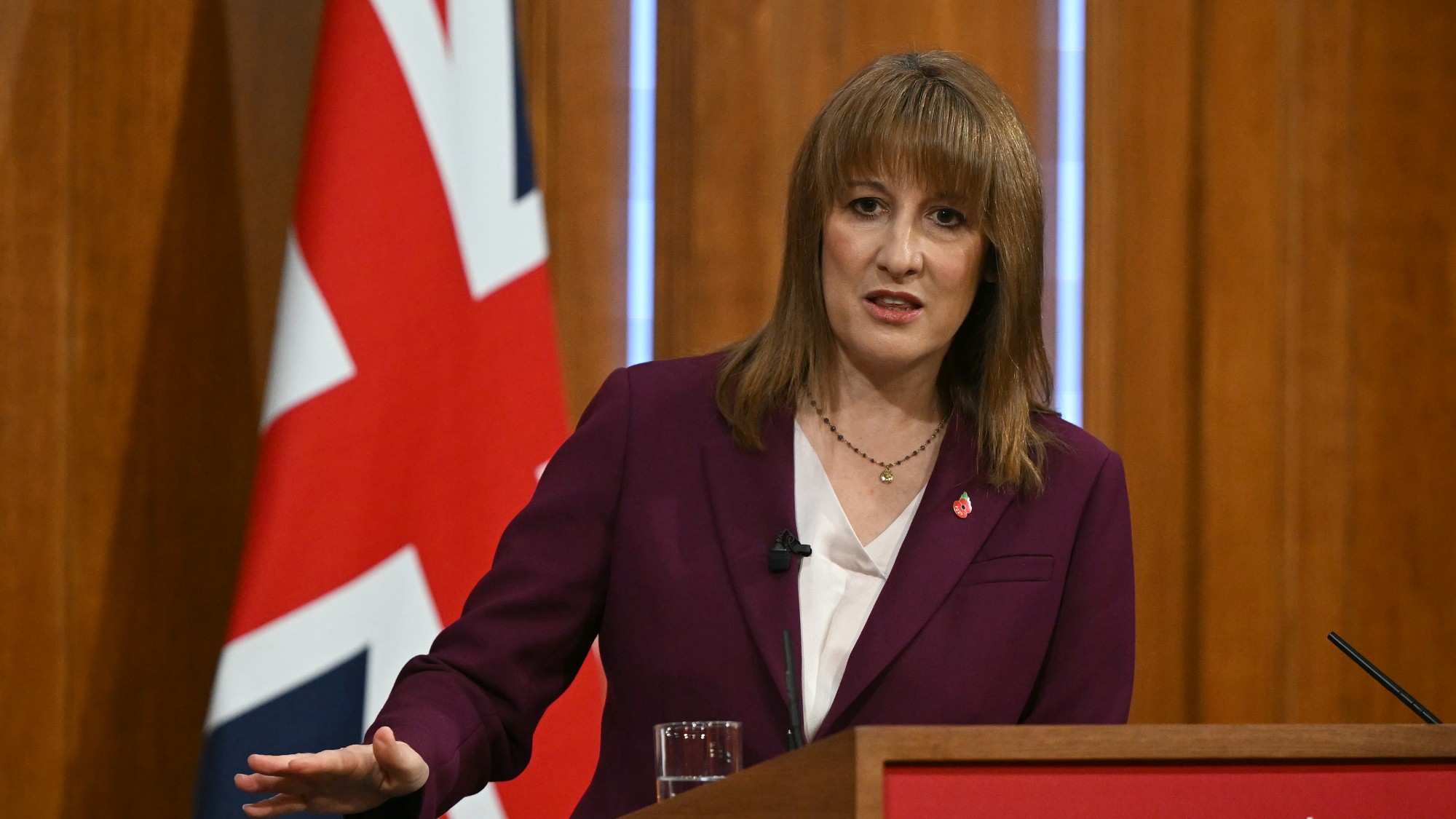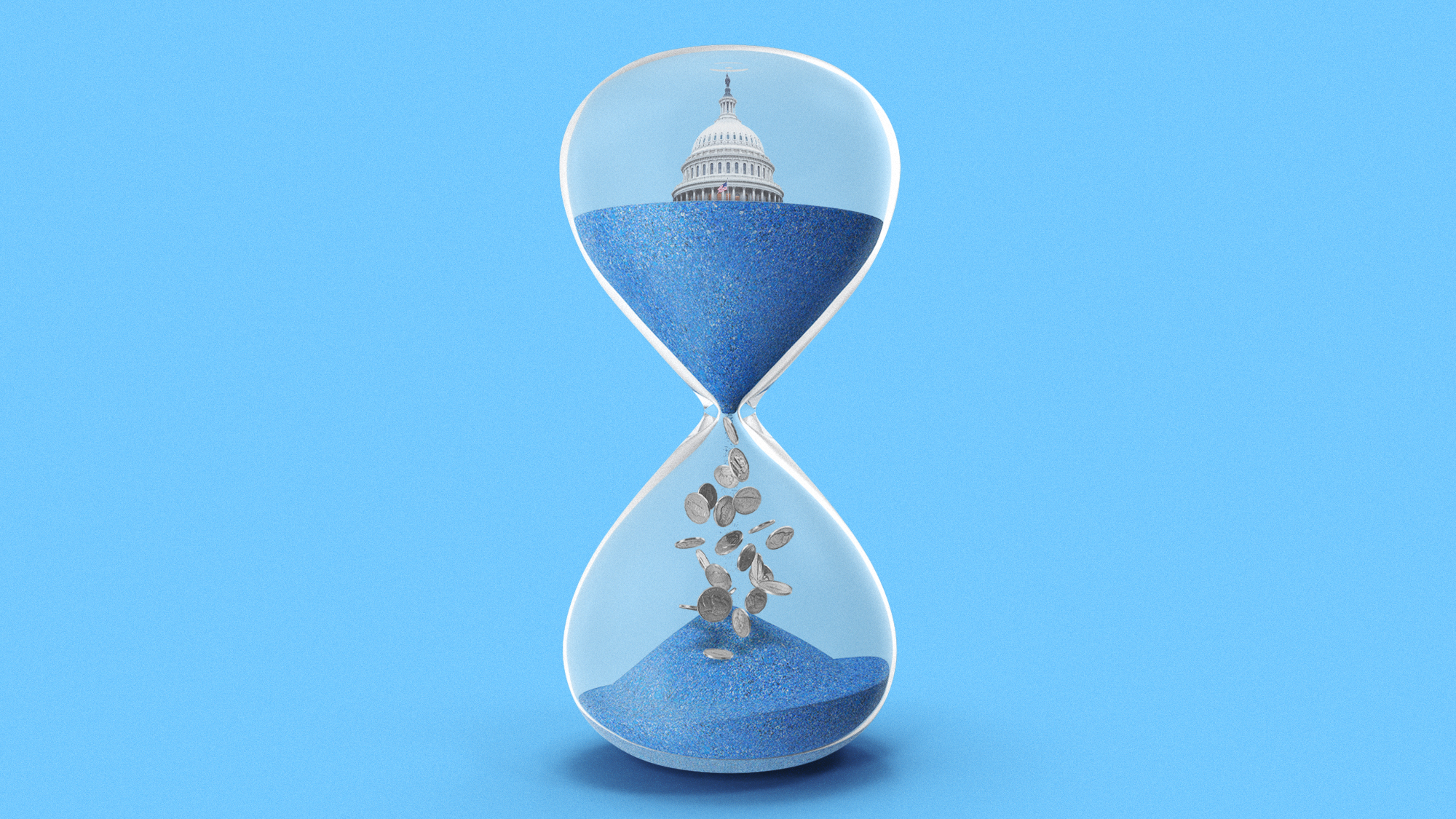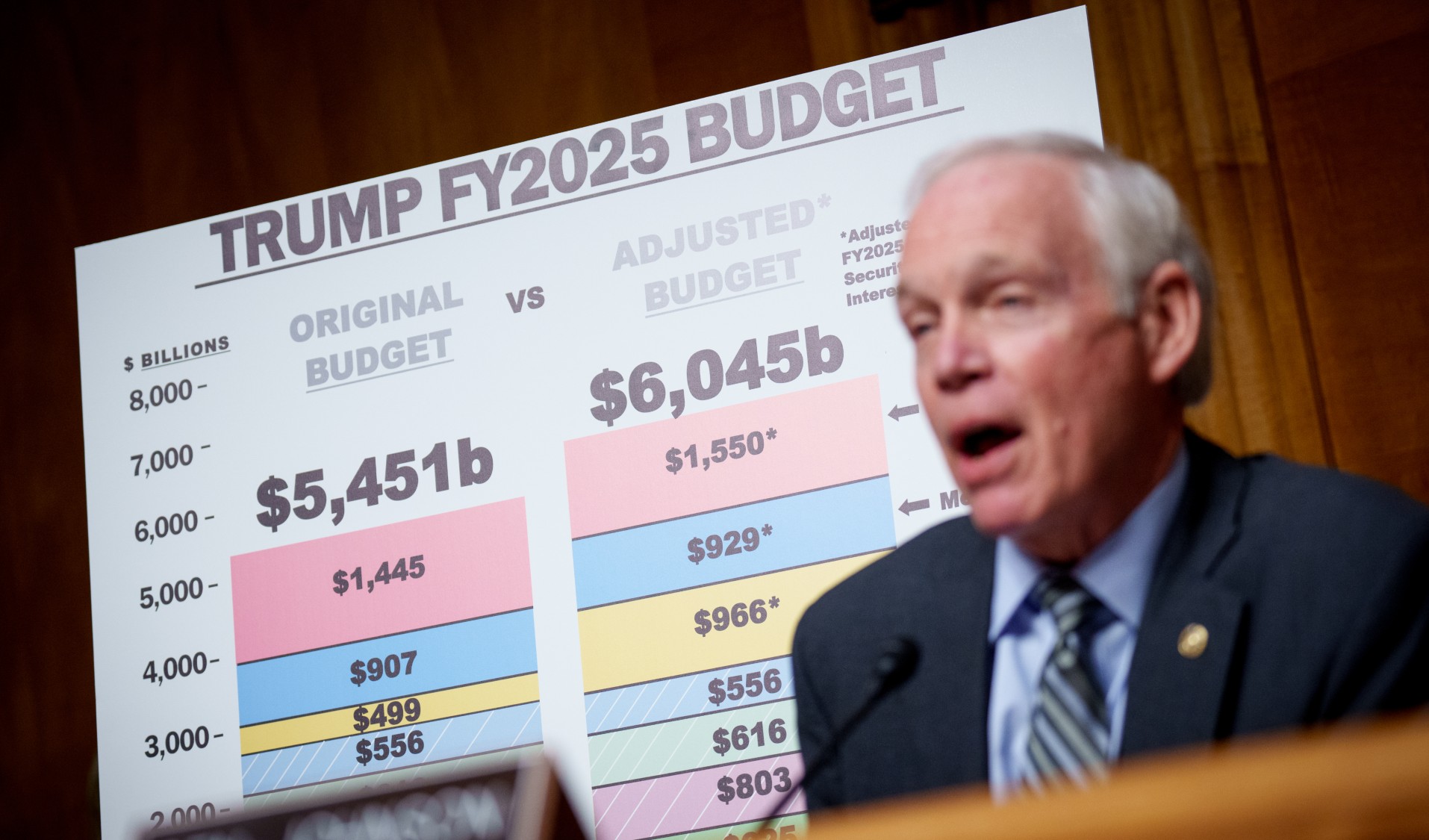Budget 2023: the big giveaways and takeaways
The chancellor is banking on extension of free childcare and lifting of pension caps to drive economic growth

A free daily email with the biggest news stories of the day – and the best features from TheWeek.com
You are now subscribed
Your newsletter sign-up was successful
Jeremy Hunt has laid out a range of eye-catching proposals for tax and spending in his first Budget, provoking mixed reactions from economists, campaigners and politicians both in his own and opposition parties.
The chancellor’s “back-to-work” Budget is intended to encourage economic growth by boosting employment through measures including extending free childcare and lifting a cap on tax-free pension savings.
Here are some of the big giveaways and takeaways.
The Week
Escape your echo chamber. Get the facts behind the news, plus analysis from multiple perspectives.

Sign up for The Week's Free Newsletters
From our morning news briefing to a weekly Good News Newsletter, get the best of The Week delivered directly to your inbox.
From our morning news briefing to a weekly Good News Newsletter, get the best of The Week delivered directly to your inbox.
Giveaways
Childcare
Amid mounting calls to help cut childcare costs, Hunt is extending the existing 30 hours of free childcare for 38 weeks of the year to children aged over nine months.
The current policy only applies to three- and four-year-olds. But under the changes, working parents of two-year-olds will be able to access 15 hours of free care from April 2024. From September 2024, that 15 hours will be extended to all children from nine months up, benefiting almost a million more parents.
And from September 2025, every parent who works more than 16 hours a week and has a child aged under five will have access to 30 hours free childcare per week.
A free daily email with the biggest news stories of the day – and the best features from TheWeek.com
Hunt is also introducing a pilot scheme paying between £600 and £1,200 to people signing up to the childcare profession, and nurseries will get a funding boost of £204m from this September, rising to £288m next year.
Energy subsidy
The government’s energy price guarantee, which caps average household bills at £2,500, will be extended for a further three months, from April to June.
The energy price guarantee had been set to expire at the end of March, but a fall in wholesale gas prices since late December has reduced the cost of the measure to the Treasury, allowing the chancellor to continue to help households.
“High energy bills are one of the biggest worries for families, which is why we’re maintaining the energy price guarantee at its current level,” said Hunt. Households with prepayment meters will pay for energy in line with customers on direct debit, he added.
Plans to raise the rate of fuel tax on petrol and diesel have been scrapped.
Pensions
The chancellor is planning a substantial increase in how much workers can put aside for their pensions each year and save overall in a lifetime while minimising tax. The annual tax-free allowance is to rise from £40,000 to £60,000, and the lifetime allowance, which stands at £1.07m, will be abolished.
However, the change is not expected to benefit many workers. Consultancy LCP told the BBC that the total number who had already exceeded the lifetime limit or who risk breaching it was 1.3m, which amounts to less than 4% of the UK’s current workforce.
Takeaways
Corporation tax
Despite months of lobbying by MPs and businesses, Hunt is increasing corporation tax from 19% to 25%. The move “is set to trigger a Tory backbench revolt”, said The Telegraph, but the chancellor has argued that any major tax cuts would currently risk destabilising public finances.
As he tried to “see off Tory tax rebels”, Hunt insisted that his Budget would help drive economic growth, telling the Commons that only 10% of companies will pay the full 25% rate.
But Tory MP Simon Clarke, a former member of Liz Truss’s cabinet who helped set up the pro-tax cuts Conservative Growth Group, told the paper that “this is a tax on jobs and growth”. He added: “It is very hard to see how it doesn’t have a chilling effect on the whole economy in a way which will cost every family in the country.”
To boost business investment, Hunt is rolling out a three-year 100% “full expensing” scheme, “allowing companies to offset all capital spending against their tax bill in the year it is incurred, a move costing an average of £9bn a year”, said the Financial Times.
Frozen personal allowance
Personal allowances remain frozen, “pushing more people into higher-rate tax bands and increasing the overall tax rate to 37% of GDP by 2027”, said The Guardian’s Phillip Inman. According to the OBR, that is the highest rate since the Second World War.
Hunt’s decision not to increase the personal allowance but to hike the pensions tax allowance has been met with criticism. Labour leader Keir Starmer said the Budget had benefited the “richest 1%” and was a “huge giveaway” for some of the wealthiest people in the country.
Childcare staff ratios
The government will change the existing minimum one-to-four staff ratio for children in England to one to five, in a bid to cut costs.
However, the Early Years Alliance, which represents around 14,000 childcare providers in England, said any relaxing of ratios would risk “severely compromising the safety and quality of care” and would add pressure on already overstretched carers during “a severe staffing crisis”.
Arion McNicoll is a freelance writer at The Week Digital and was previously the UK website’s editor. He has also held senior editorial roles at CNN, The Times and The Sunday Times. Along with his writing work, he co-hosts “Today in History with The Retrospectors”, Rethink Audio’s flagship daily podcast, and is a regular panellist (and occasional stand-in host) on “The Week Unwrapped”. He is also a judge for The Publisher Podcast Awards.
-
 The ‘ravenous’ demand for Cornish minerals
The ‘ravenous’ demand for Cornish mineralsUnder the Radar Growing need for critical minerals to power tech has intensified ‘appetite’ for lithium, which could be a ‘huge boon’ for local economy
-
 Why are election experts taking Trump’s midterm threats seriously?
Why are election experts taking Trump’s midterm threats seriously?IN THE SPOTLIGHT As the president muses about polling place deployments and a centralized electoral system aimed at one-party control, lawmakers are taking this administration at its word
-
 ‘Restaurateurs have become millionaires’
‘Restaurateurs have become millionaires’Instant Opinion Opinion, comment and editorials of the day
-
 Will Rachel Reeves’ tax U-turn be disastrous?
Will Rachel Reeves’ tax U-turn be disastrous?Today’s Big Question The chancellor scraps income tax rises for a ‘smorgasbord’ of smaller revenue-raising options
-
 Will the public buy Rachel Reeves’s tax rises?
Will the public buy Rachel Reeves’s tax rises?Today’s Big Question The Chancellor refused to rule out tax increases in her televised address, and is set to reverse pledges made in the election manifesto
-
 ‘We must empower young athletes with the knowledge to stay safe’
‘We must empower young athletes with the knowledge to stay safe’Instant Opinion Opinion, comment and editorials of the day
-
 What's a pocket rescission and can Trump use one?
What's a pocket rescission and can Trump use one?The Explainer The White House may try to use an obscure and prohibited trick to halt more spending
-
 Trump's budget bill will increase the deficit. Does it matter?
Trump's budget bill will increase the deficit. Does it matter?Today's Big Question Analysts worry a 'tipping point' is coming
-
 Sick 9/11 responders are being left behind amid federal spending battle
Sick 9/11 responders are being left behind amid federal spending battleThe Explainer Services have been cut and restored following outcry, but staffing issues remain
-
 Budget: Will the GOP cut entitlements?
Budget: Will the GOP cut entitlements?Feature Republicans are pushing for a budget to cut Medicaid
-
 What is 'impoundment' and how does it work?
What is 'impoundment' and how does it work?The Explainer The Trump administration grabbed at the 'power of the purse' in Congress, using a little-known executive action that could have massive implications for the future